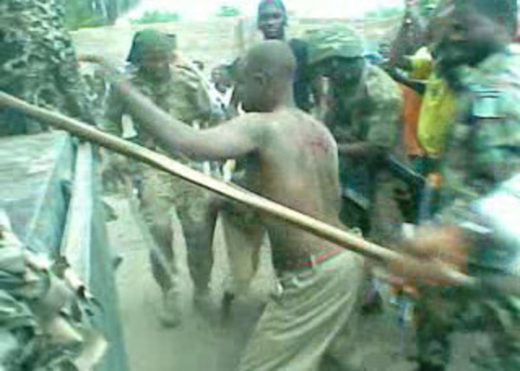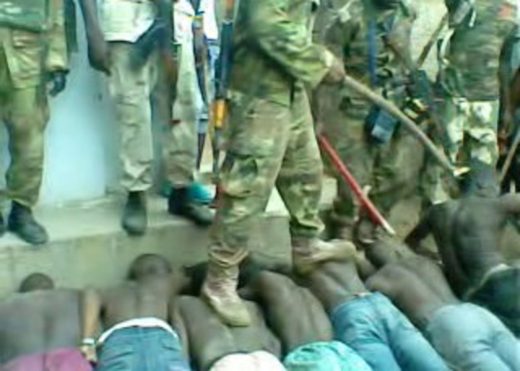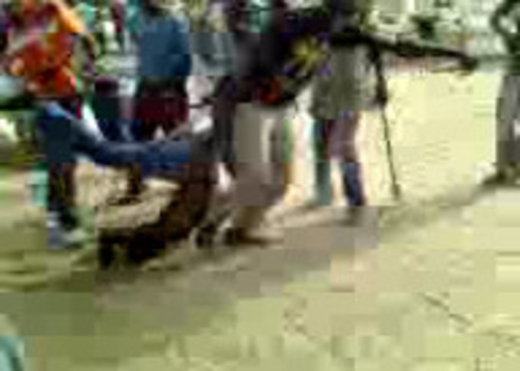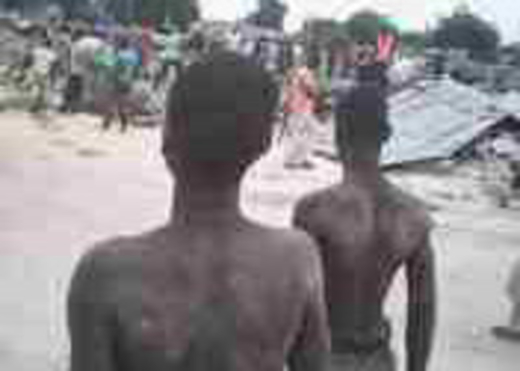Starved and suffocated to death
Saleh Jega, will never forget the morning of 25 November 2012, when his life changed beyond recognition, nor the horrifying 15 months that followed.
Living under constant threat from Boko Haram in his home in Maiduguri, Saleh was caught up in the wrong place at the wrong time. The 25-year-old carpenter was arrested by the Nigerian military during a cordon-and-search operation. The military were looking for Boko Haram’s members and any men who seemed to fit the bill.
Saleh spent the following 15 months in a cell, along with dozens of other men, in Giwa military Barracks in Yobe State. Space in the cell was so limited they would have to take turns to sit down, with restricted ventilation many died of suffocation. Meals consisted of a portion of rice that would fit in his hand, once or twice a day, and water was seen as a luxury.
The carpenter fled after Boko Haram attacked the barracks in March 2014. During his time there, he saw many people die, mainly of starvation and thirst. At its worse, he saw up to 80 people die in a single day. Out of the 19 he was arrested with, only four survived.
We were denied water for two days, 300 people died. Whenever someone died, we were happy because of the extra space.



Witch Hunt
Saleh is one of the more than 20,000 people, mostly young men and boys as young as nine, who have been arrested by the Nigerian military in operations in the states of Borno, Yobe and Adamawa since 2009. They were taken under suspicion of being members of the militant group Boko Haram, without any adequate investigation or evidence against them.
They (military) divided us into two groups: old men and youths. Fourteen were separated because we are too skinny and have marks on our bodies. Then they tied us with a robe, beat us with sticks and put us in a car to Giwa Barracks.
Bashir Tijani (not his real name), a 35-year-old farmer and cleric, arrested in Konduga on 20 June 2013.
More than 1,200 people were extrajudicially executed during the raids. At least 7,000 have died in custody after being tortured or of thirst, starvation, severe overcrowding that led to the spread of diseases and the use of fumigation chemicals in unventilated cells.
The true numbers are impossible to confirm, but are likely to be much higher.
The Numbers
Jidda Ali* who was held at the Potiskum military facility, Yobe state
They have a big hole in the camp where they put people for long hours and even days… They poured cold water on us and at other times they burn polythene and drop the hot melting polythene on our backs. I spent over three days in this hole.



The story is so shocking it is almost hard to believe.
But evidence released today by Amnesty International – based on dozens of military documents and correspondence as well as interviews with victims, eyewitnesses and members of the security forces — reveals that senior officials of the Nigerian military had full knowledge of the arbitrary detentions and high rates of deaths and failed to take action to stop these human rights violations.
The previous Nigerian administration’s utterly callous ‘see no evil, hear no evil, speak no evil’ attitude when it comes to the hundreds of stories of death coming out of the military detention centres beggars belief.
Salil Shetty, Amnesty International's Secretary General
A high-ranking military officer gave Amnesty International a list of 683 detainees who died over a five-month period from October 2012 in Giwa barracks. Based on his visits and discussions with soldiers stationed there, he estimated that “close to 5,000 people” have died there since the beginning of 2013.
Most of the deaths are still officially unrecorded.
“The hundreds of unidentified bodies, the evidence of mass graves and the harrowing stories of starvation and abuse coming out of the country’s military barracks demand nothing less than an urgent investigation and for those responsible to be brought to justice,” said Salil Shetty, Amnesty International’s Secretary General.

